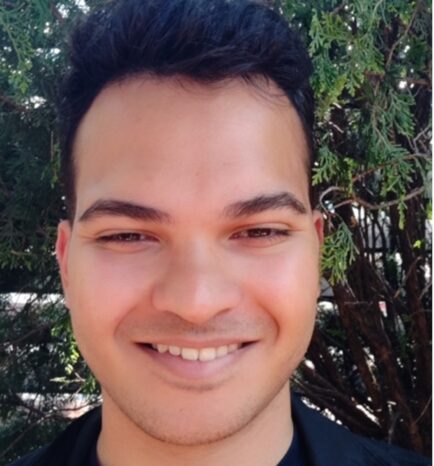
What if we could be transported back in time to the 1867 Paris World’s Fair? The UE1867 Project at EPFL’s Laboratory for Experimental Museology (eM+), developed in collaboration with the MIT Museum and the University of Paris, is bringing the fair to life through an immersive experience. Using the tools of computational museology, the project aims at creating a navigable landscape from archival stereographic images of the fair.
To discover what such a navigable landscape will look like, join us for an online demo and discussion of the UE1867 Project featuring eM+ Director Sarah Kenderdine, Gary Van Zante of the MIT Museum, and eM+ PhD candidate Dhruva Gowda Storz. The program will be livestreamed from one of the world’s largest 360° immersive environments at EPFL in Lausanne, Switzerland.
About The Experimental Museum
The Experimental Museum is a traveling hybrid conversation series fostering an exchange of ideas between innovative museums across Switzerland, the US, and the world, focusing on interactive museum environments and novel interfaces between museums and their cities.
Program
- 12:30pm – Event starts
- 12:31pm – Introductions
- 12:33pm – Sarah Kenderdine | Introduction to the Laboratory for Experimental Museology and computational museology
- 12:35pm – Gary Van Zante | The project rationale: creating an exhibition on the Paris Universal Exposition of 1867
- 12:38pm – Sarah Kenderdine | The UA1867 exhibition stereo spectacular
- 12:45pm – Dhruva Gowda Storz | Emerging technologies for working with stereographic records
- 12:50pm – Application demo
- 1:00pm – Event ends
iCal / Outlook
Event start time
-
Boston
12:30PM -
Brazil
1:30PM -
China
12:30AM -
India
10:00PM -
San Francisco
9:30AM -
Switzerland
6:30PM
Speakers
-
![]()
Bio
Sarah Kenderdine
Director, Laboratory for Experimental Museology, EPFL; Director and Lead Curator, EPFL Pavilions, Lausanne, SwitzerlandProfessor Sarah Kenderdine leads a team of software engineers, artists, and curators, at the forefront of interactive and immersive experiences for galleries, libraries, archives and museums. In widely exhibited installation works, she has amalgamated tangible and intangible cultural heritage with new media art practice, especially in the realms of interactive cinema, augmented reality and embodied narrative. Sarah has produced 90 exhibitions and installations for museums worldwide. In 2017, Sarah was appointed professor at the École Polytechnique fédérale de Lausanne (EPFL), Switzerland where she has built the Laboratory for Experimental Museology (eM+), exploring the convergence of imaging technologies, immersive visualisation, digital aesthetics and cultural and scientific (big) data. She has raised nearly CHF 12 mio in competitive grant funding and donations since arriving in Switzerland. Since 2017, Sarah has taken the first directorship and is lead curator of EPFL Pavilions, a new art/science initiative housed in a seminal Kengo Kumar building. Located at the heart of a vibrant international university and elite engineering school, EPFL Pavilions is an amplifier for art, science and society, a meeting place for all disciplines. Reaching beyond object-oriented curation, EPFL Pavilions blends experimental curatorship and contemporary aesthetics with open science, digital humanism and emerging technologies.
-
![]()
Bio
Dhruva Gowda Storz
PhD candidate, Laboratory for Experimental Museology, EPFLDhruva Gowda Storz is a PhD candidate in the Laboratory for Experimental Museology (eM+) at EPFL developing an immersive exhibition on the Exposition Universelle 1867. With a background in cultural heritage and contemporary art and training in a broad range of technical disciplines including physics, computational neuroscience, and artificial intelligence, Dhruva has a transdisciplinary skill set and a keen interest in the convergence of specialized knowledge. Dhruva is currently engaged in exploring how the power of machine learning can be combined with a media arts approach to conceive of new forms of immersion and interaction in our increasingly virtual world. His research also spans the application of cutting-edge computational techniques to cultural heritage data. Before joining eM+, Dhruva worked as a research scientist at interdisciplinary research spaces such as the Art Science Lab Bengaluru and the Indian Sonic Research Organization, and headed the development of Lekha, an online archival platform for artists.
-
![]()
Bio
Gary Van Zante
Curator, MIT MuseumGary Van Zante is curator of architecture, design, and photography collections at the MIT Museum, Massachusetts Institute of Technology. During 21 years at MIT he has curated or organized over 60 exhibitions, including many for the Kurtz Gallery for Photography. His exhibitions have ranged from American daguerreotype portraiture to contemporary photography of South Africa, and have focused especially on urban and architectural photography and photography of place, areas of his research. His most recent exhibition, on Minor White and photographic education of the 1960s through the early 1980s, is currently on view at the MIT Museum. Van Zante has collaborated on exhibitions for the Die Photographische Sammlung, Cologne; the Mapfre Museum, Madrid and Barcelona; Huis Marseille, Museum of Photography, Amsterdam; and the Multimedia Museum, Moscow. He has been visiting research faculty in the history of photography at the University of Paris VII in 2016 and 2021. He has contributed essays to several books on Berenice Abbott, and to monographs on Harold Edgerton and Polaroid photography. He is the author of books on nineteenth century urban photography in New Orleans and on the German photographer Ulrich Wüst, published by Kerber Verlag in 2022.





